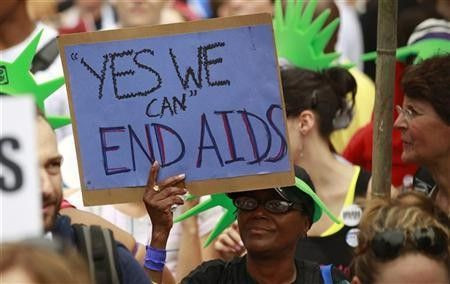WHO Urges Gay Men to Take HIV Drugs
Gay Me Are at an Increased Risk of Contracting AIDS

The increasing cases of HIV all around the world among gay men led World Health Organisation (WHO) to urge them to take antiretroviral drugs to reduce the spread of HIV. WHO officials said it will help prevent nearly a million new HIV infections in 10 years.
"We are seeing exploding epidemics," warned Gottfried Hirnschall, who heads WHO's HIV department. According to the WHO report, men who have sex with men are 19 times more at a risk of being infected by HIV.
Officials, however, fear that the drug may reduce the use of condoms among gay men, which is the best methods to stop the virus from spreading. The UN health agency, therefore, for the first time "strongly recommends men who have sex with men consider taking antiretroviral medicines as an additional method of preventing HIV infection." This is its new recommendations for combating the HIV/AIDS pandemic, published on Friday.
Health experts say that the antiretroviral drugs also known as pre exposure prophylaxis medication will be an added precautionary measure along with the use of condoms. Studies show that taking this medication reduces the risk of HIV by up to 92 per cent, provided they are taken regularly. Scientists, however, stress on the medication and state that a combination of the usage of condoms and an intake of the pill can cut HIV incidence among highly prone men by 20 to 25 per cent.
Dr Rosemary Gillespie of the Terrence Higgins Trust said, "We already know if someone has HIV, using treatment drastically reduces the likelihood of them passing it on, as does using condoms. The idea of treatment as prevention is not new, but the idea of extending treatment to HIV-negative people from high-risk groups is."
She said that pre-exposure prophylaxis is an exciting approach, and is likely to be one of a number of ways in which one can reduce the spread of HIV in the future. But it would be necessary for them to evaluate how effective it will be in preventing HIV among gay men, she said.
The new guidelines point out that men who have sex with men, transgender people, prisoners, people who inject drugs and sex workers together account for about half of all new HIV infections worldwide. The report found transgender women to be 50 times more likely to have HIV than other adults and sex workers are 14 times more likely.
Most countries, the report states, concentrate on fighting HIV infection among the general public and pay less attention to these groups who form the majority of the infected. Dr Gottfried Hirnschall of the World Health Organisation said that tackling the virus among the most at risk must be the priority. He further explained that these people have families and others who could be at a risk of contracting the disease. None of them live in isolation.
"Failure to provide services to the people who are at greatest risk of HIV jeopardises further progress against the global epidemic and threatens the health and well-being of individuals, their families and the broader community," he said.





















